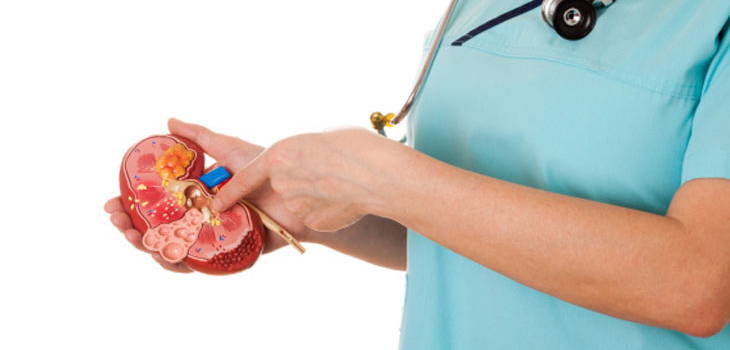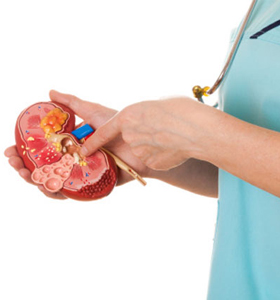
Kidney stones are hard deposits made of minerals and salt that form inside your kidneys.
Kidney stones usually originate in your kidneys. However, they can develop anywhere along your urinary tract, which consists of these parts:
- kidneys
- ureters
- bladder
- urethra
What are the causes of kidney stones?
You may also be more likely to have kidney stones if:
- You have had kidney stones before.
- Someone in your family has had kidney stones.
- You don’t drink enough water.
- You follow a diet high in protein, sodium and/or sugar.
- You are overweight or obese.
- You have had gastric bypass surgery or another intestinal surgery.
- You have polycystic kidney disease or another cystic kidney disease.
- You have a certain condition that causes your urine to contain high levels of cystine, oxalate, uric acid or calcium.
- You have a condition that causes swelling or irritation in your bowel or your joints.
- You take certain medicines, such as diuretics (water pills) or calcium-based antacids.
Symptoms
A kidney stone usually will not cause symptoms until it moves around within your kidney or passes into your ureters — the tubes connecting the kidneys and the bladder. If it becomes lodged in the ureters, it may block the flow of urine and cause the kidney to swell and the ureter to spasm, which can be very painful.
At that point, you may experience these signs and symptoms:
- Severe, sharp pain in the side and back, below the ribs
- Pain that radiates to the lower abdomen and groin
- Pain that comes in waves and fluctuates in intensity
- Pain or burning sensation while urinating
- Other signs and symptoms may include:
- Pink, red or brown urine
- Cloudy or foul-smelling urine
- A persistent need to urinate, urinating more often than usual or urinating in small amounts
- Nausea and vomiting
- Fever and chills if an infection is present
Pain caused by kidney stones may change — for instance, shifting to a different location or increasing in intensity — as the stone moves through your urinary tract.

